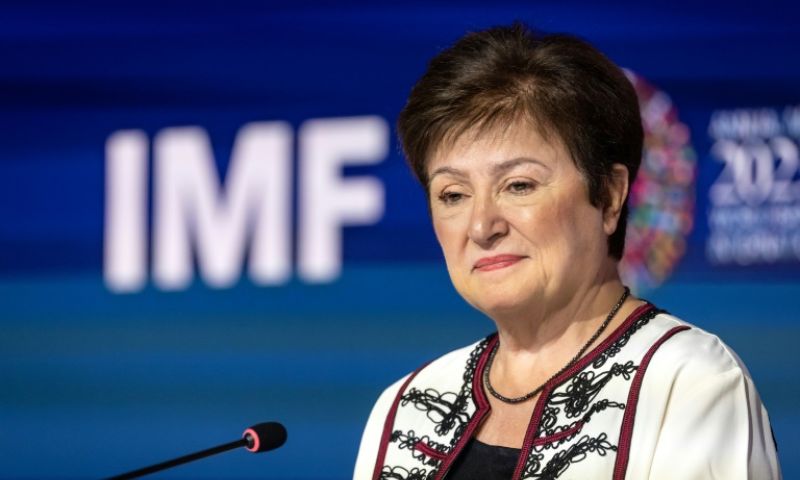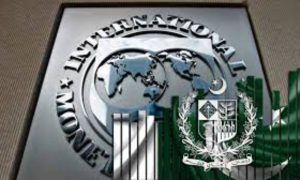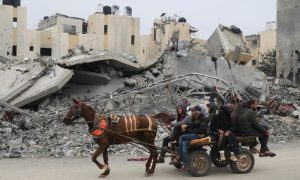Pakistan finds itself at a critical juncture, as it is transitioning to a new government amid a backdrop of formidable economic challenges. With burgeoning debt levels, persistent fiscal deficits, and imbalances in its external accounts, the country’s economic stability hovers on a precarious edge. In response to these pressing issues, the new government should embark on negotiations with the International Monetary Fund (IMF) in pursuit of a bailout package aimed at stabilizing the economy and enacting essential structural reforms.
One of the primary objectives of the IMF program will be to achieve fiscal consolidation; thereby, endeavoring to reduce the budget deficit and curtail government borrowing. The new administration is anticipated to undertake measures aimed at augmenting revenue collection, rationalizing expenditures, and reforming subsidies. This may entail overhauls in tax administration, broadening the tax base, and trimming non-development expenditures to rein in fiscal deficits and fortify public finances.
A key feature of the IMF program lies in the reduction of the fiscal deficit to a specified percentage of gross domestic product (GDP) over the program’s duration. Concurrently, the implementation of tax reforms, including the establishment of a more equitable tax system and measures to combat tax evasion, is imperative. Furthermore, the rationalization of subsidies, particularly in sectors such as energy, is deemed necessary to alleviate fiscal burdens and enhance efficiency.
Inflationary pressures have persistently bedeviled Pakistan’s economy, corroding purchasing power and undermining macroeconomic stability. The IMF program is poised to concentrate on monetary policy measures designed to mitigate inflationary pressures, while fostering economic growth.
The State Bank of Pakistan (SBP) is likely to be entrusted with the task of upholding price stability through judicious monetary policy, encompassing interest rate adjustments and liquidity management. Central to this endeavor is the establishment of target inflation rates within a specified range over the program’s tenure, harmonizing price stability with growth imperatives.
Concurrently, the implementation of monetary policy measures to ensure adequate liquidity, while forestalling excessive money supply growth is essential. Strengthening the independence and efficacy of the SBP in conducting monetary policy and managing inflation expectations is also paramount.
Similarly, structural reforms are considered indispensable to address Pakistan’s entrenched economic challenges and augmenting long-term growth prospects. The IMF program is anticipated to encompass measures aimed at fortifying governance, refining the business environment, and catalyzing private sector-led growth. This may encompass initiatives to fortify institutions, streamline regulations, and foster transparency and accountability in public sector operations.
Vital to this endeavor is the implementation of governance reforms aimed at enhancing transparency, curbing corruption, and enhancing public service delivery. Additionally, measures to ameliorate the ease of doing business, encompassing the simplification of regulatory procedures and the reduction of bureaucratic impediments, are essential. Furthermore, stimulating private sector investment through investment-friendly policies, infrastructure development, and incentives for entrepreneurship is also necessary.
As the government embarks on implementing reforms to stabilize the economy, it must concurrently ensure the protection of vulnerable segments of society from the adverse repercussions of adjustment measures. The IMF program is anticipated to incorporate provisions to fortify social safety nets and expand social protection programs to alleviate the impact on low-income households.
Integral to this initiative is the expansion of targeted social assistance programs to strengthen the most vulnerable segments of society, encompassing cash transfers, food subsidies, and healthcare benefits. Augmenting education and healthcare infrastructure to bolster access to essential services and human capital development is also indispensable.

Likewise, the implementation of measures to foster inclusive growth and diminish income inequality, including initiatives to engender employment opportunities and empower marginalized communities is the need of the hour.
The impending IMF program presents an array of challenges and opportunities for Pakistan, as it endeavors to chart its economic course under a new government. By committing to ambitious targets and benchmarks across fiscal consolidation, monetary policy, structural reforms, and social safety nets, the government can lay the groundwork for sustainable and inclusive growth.
However, the realization of these objectives necessitates robust political will, effective implementation mechanisms, and widespread support from the stakeholders across society. Through concerted efforts and prudent policies, Pakistan can surmount its economic challenges and unlock its true potential on the global stage.























